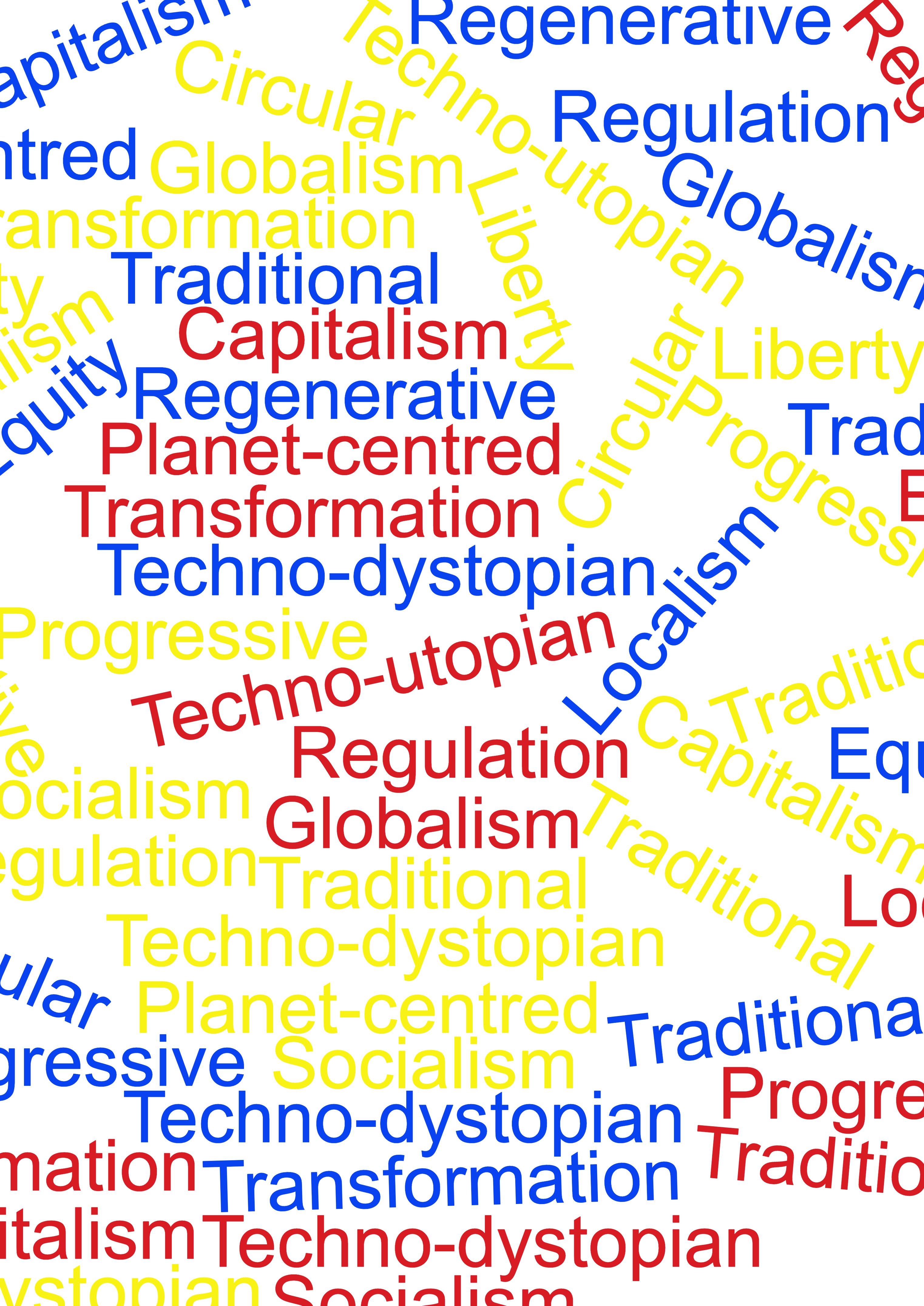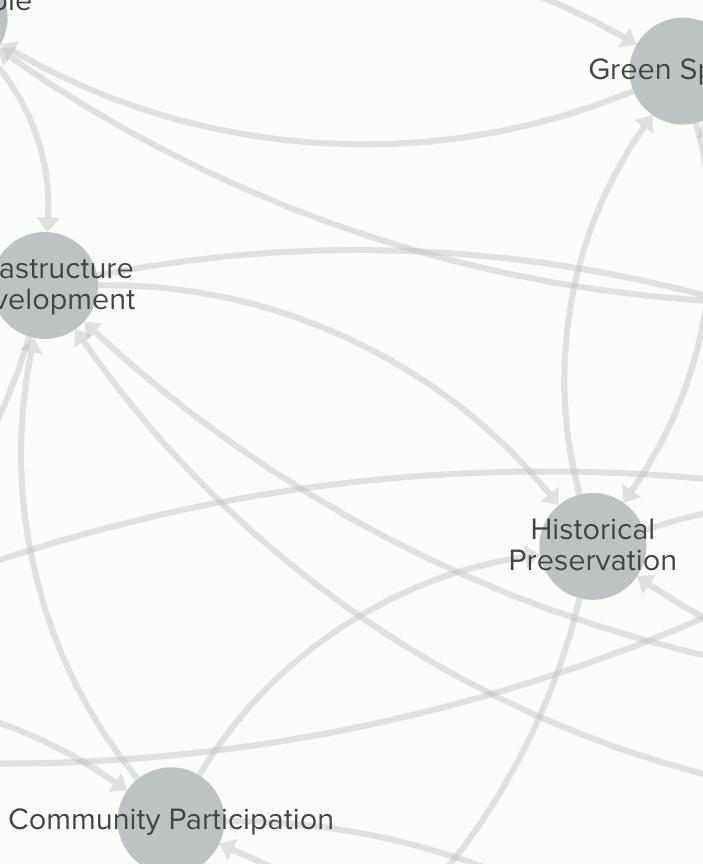








In a world that is constantly reshaping itself, Diocesan School for Girls stands firm in its commitment to equipping our students with the ability to navigate the future with wisdom and grace. The Infinite Leadership and Futures Thinking Programme, crafted over several years with guidance from educational experts, practising futurists, and renowned organisations such as UNESCO, is at the heart of this commitment.
The programme deploys strategies that encourage both creative and critical thinking. Utilising our own purposebuilt online learning environment, students can leverage the vast collective intelligence of their peer group. This approach enhances collaboration and provides opportunities for them to explore alternative perspectives.
As students work through the programme, they are given opportunities to explore areas of personal interest. This tailored exploration enables them to align their
passions with potentials, forging a unique path for each individual.
The Infinite Leadership and Futures Thinking Programme at Diocesan School for Girls serves as a philosophical compass, guiding our students towards a future filled with promise, purpose, and unparalleled potential.
We warmly invite you to delve into this forward-thinking programme.
Confident that together, we are laying the foundation for our girls to embrace the complexities of today, and seize the opportunities of tomorrow.
Chris Clay Director of Leadership and Futures Thinking Diocesan School for Girls
The Infinite Leadership and Futures Thinking Programme is built upon three fundamental dimensions. Together, these dimensions provide a comprehensive foundation for students, equipping them with the essential skills and understanding to thrive in today’s complex, interconnected world.
By focusing on perspectives, systems thinking, and leadership, the programme offers a holistic approach to education. It weaves together disciplinary knowledge from traditional subjects, preparing students for the challenges and opportunities of the future.
In a world brimming with opposing ideas and viewpoints, understanding the landscape can be challenging.
“Thinking about the future isn’t a job for special occasions; it’s a way to see the present more clearly, as well as to build the best future that you possibly can.” Anon
The Programme guides students to differentiate between conflicting ideas by uncovering the principles, biases, and priorities that underpin them. Through fostering empathy with multiple perspectives, students are better equipped to cut through the noise and get to the true substance.
Through a systems lens, our students learn how interconnected elements shape our world, gaining essential insights into how change happens and new futures evolve..
Our students learn to appreciate complexity and embed this understanding into ideation and decision-making. This approach allows us to foster thoughtful leaders for a multifaceted global landscape.
In our rapidly changing world, filled with conflicting ideas and viewpoints, students must learn how to navigate the complexity. The Infinite Leadership and Futures Thinking Programme helps them make sense of it all by addressing learning in the following areas:
In a world filled with possibility, being clear on the types of futures you prefer and the means of realising them can be fraught. Through engagement with our purposebuilt online tool, FutureLens, our students are able to explore diverse ideas about possible future states whilst also learning more about their own biases and priorities. This enables them to look beyond the ideas themselves so they can understand and articulate the ideologies on which they rest.
As students become more familiar with the priorities, biases, and ideologies that underpin our perspectives on the future, they are also more able to understand why others hold different perspectives. This understanding helps students to explore the broadest possible range of futures and actively challenge their own assumptions.
Highlighting the emergence of signals of change, our students become increasingly aware of changes happening in our world. The programme has demonstrated a track record of helping students identify key issues as they emerge so they can contemplate changes before they happen. Over the last two years, students have explored a diverse range of topics including gene doping, Kate Raworth’s doughnut economics, generative AI and virtual humans, de-extinction, intellectual property law and creativity, space tourism, and many more.


Year 7-8
Year 9-10
Year 11-13
Students use the FutureLens tool to explore future possibilities and reflect on their biases and priorities.
At this level students explore future possibilities that are related to perspectives that are typically considered to be:
• Progressive
• Traditional
• Planet centred
• Human centred
Students also engage in class discussions based on emerging issues that are explored during workshops.
As in year 7-8+
Students at this level also consider future possibilities that are related to perspectives that are typically considered to be:
• Libertarian
• Rules-based society
• Techno-utopian
• Techno-dystopian
As in year 9-10+
Students at this level also consider future possibilities that are related to perspectives that are typically considered to be:
• Economic freedom
• Legislated equality
• Personal choice
• Legislated morality
• Colonialism
• Postcolonialism
Understanding the interconnected nature of our world is essential for future leadership.
The Systems Thinking dimension includes learning related to the following key insights:
Students learn how systems are made up of agents that interact with each other. These interactions shape the systems we interact with, such as our education, health, and transport systems.
Students learn to interpret and create increasingly complex diagrams representing complex adaptive systems. They discover how to identify interdependence within the system and explain how changes in one part can impact the system as a whole. As students progress, they also learn to recognise features like feedback loops and bottlenecks.
Students learn to forecast changes across a system resulting from possible events by examining interactions and interdependence between elements. They also learn how using models in this way can help illuminate unintended consequences when taking action.


Year 7-8
• Be able to identify different elements of systems. For example, what are the different things that make up our education system - Schools, teachers, students, school buses, etc.
• Show how these different things can interact with one another.
• Use game-based approaches to model and record the interactions between different elements in a system.
As in year 7-8+
Year 9-10
Year 11-13
• Identify the patterns of change and the interactions that drive change or maintain the systems stability including exploration of the concept of interdependence.
As in year 9-10+
• Consider actions and consequences in a system by evaluating simple system diagrams.1st/2nd/3rd order consequences and impact cascades.
• Consider how systems might change in different future scenarios. For example, how might this system change if this future was more libertarian or planet centred? Or how might the system respond if a new technology becomes widespread or a law changes?
In an era marked by complexity and rapid change, the demand for leadership that can grapple with multifaceted issues is greater than ever. The Infinite Leadership and Futures Thinking Programme rises to this challenge by focusing on:
Students learn to consider diverse drivers of change related to social, technological, economic, environmental, and political spheres. They become able to imagine a broad range of possible futures and identify pathways that could make these a reality.
In today’s world, one of the few constants is change. As students progress, they follow trends and emerging phenomena, engaging with multiple perspectives to become more mindful of a range of possible trajectories. They also become more considerate of the implications of change on the systems they study and on their own plans for the future.
As students progress, they consider the role that their decisions and agency play in shaping the future, exploring actions they can take to make their preferred futures more likely. As they mature, they focus more on ways to lead change in a fluid global landscape. By thinking beyond simple cause-and-effect relationships, they evaluate and develop interventions that are mindful of interdependence, considerate of unintended consequences, and resilient to change.


Year 7-8
Year 9-10
Year 11-13
• Articulate visions of the future that are shaped by single dominant characteristics such as planet centred or human centred.
• Consider the ways that our biases and priorities can influence what we notice in the world.
• Develop ideas for interventions that could be used to create a different future.
• Articulate preferences about the future using increasingly diverse dimensions (such as libertarian vs rule-based, etc).
• Consider the ways that our biases and priorities can influence what we notice in the world, and learn to experience the world from another’s perspective.
• Identify interventions that could be taken to make preferred futures more likely
• Explore increasingly complex visions for preferred futures. These should attempt to weave together different ideologies and preferences. For example, a vision for a future that is simultaneously planet-centred, libertarian and traditional as an example.
• Develop and evaluate ideas for interventions that could be used to change a system. Evaluate the reasoning behind the intervention, what are the various consequences that might emerge, etc.
• Develop visions of the future that try to move beyond the dimensions we typically use to make sense of our world (e.g. socialism, capitalism, etc). Through this process, we are able to evaluate and develop ideas that we might consider to be sufficiently divergent that we call them “transformational”.
“ I love the topics and found exploring thoughts and perspectives very interesting. School is made to learn the basics and knowledge of what is certain but I like the way the future thinking program makes you think ‘what if?’ and teaches you to think critically outside the box into the unknown, which I really enjoy.”
“I have found it interesting, and learnt a lot more than I knew before. One of the most interesting things that I learned about was the de-extinction and how scientists want to bring animals back from extinction. It made me realise that the future is going to be scary but at the same time, pretty amazing and the new technology is changing the way we think and behave.”
“ I found it interesting learning about the future of something that I was so interested in (the future of sport). Some of the things that I learnt about will have the ability to be carried over into other paths that intrigue me for the future.”
“Futures Thinking is interesting. I’ve started thinking about some issues that I’ve never realised are so important.”
“I think that this years Futures Thinking Programme is interesting because I had never thought of the topic that we have discused before going to this Futures Thinking Programme.”
“There is a lot of cool stuff that is happening in the world and how it is advancing with the dilemmas that come with it.”
“ I Enjoy when there are passionate topics that allow for good debates. such as what is art? and are humans becoming too lazy.?”
“I found everything really interesting, especially DALL-E i downloaded it and will start using it to create my own images very soon. I liked learning about de extinction and different views on it. I think it’s nice to dig deeper than the surface, especially about things that we ourselves are interested in.”


INFINITE LEADERSHIP AND FUTURES THINKING
DESIGNED BY DIO